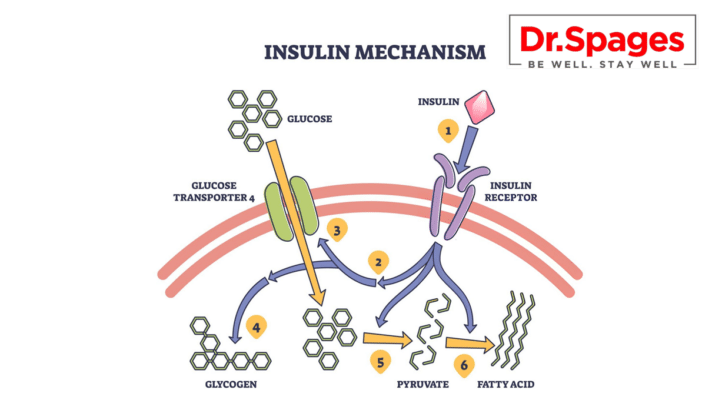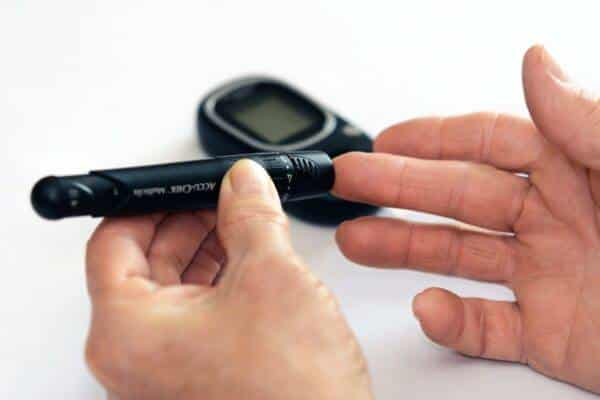
Is Keto Diet Good for Type 2 Diabetes
So I meet a lot of diabetics who go on a keto diet. They’ve researched. They’ve gone online; maybe they’ve gone all over Google to try to figure out a way that they could help their diabetes as well as maybe lose some weight and get some more energy. And one of the big diets that’s out right now is actually keto. Keto is a very, very popular diet.
It’s pretty much everywhere, right? Keto is promoted everywhere you go online, including in these groups. And people ask, Well, is keto good for reversing type 2 diabetes? So I’m going to actually get down to the nitty-gritty of this so you can really understand more about whether keto is the right thing to do to reverse your type 2 diabetes or that of someone you may know. So a lot of information is coming our way right now.
All right, so let’s get this ball rolling.
So the first thing we have to look at is, well, what exactly is keto? Okay, so I’m going to make this really simple. I know some people who are watching this have done keto. You’ve probably read 50 books on it. You’ve seen 100 videos.
But I’m going to make it really simple and keep it easy to understand. So basically, keto is a diet and kind of a lifestyle that helps your body convert fat, which we see here, into energy. Now, in our body, we need energy and fuel, and there are different ways that our body is able to do that. So, for instance, it could take sugar from our bloodstream. It could take protein from our muscles.
It could take stored energy from our liver. It could get it from a lot of different places. The way keto is engineered is to basically try to get fat to be the energy source, and thus it will promote more fat burning. Now, this sounds great, right? What could possibly go wrong here?
And is it really going to address the issues that we’re going to discuss right now? All right, so let’s talk about the keto diet. Now, the way that diet breaks down, and everybody’s a little different, some people have little modifications on this, but the basis is that you’re doing a lot of fat, okay? You’re also eating a lot of protein and very little to no carbs. That’s kind of the way it typically goes in regard to how keto is presented.
So a person on a keto diet will load up on more of the fats, the oils, and things of that nature, and then obviously the proteins and things of that nature. And then lastly, very few to no carbs. Okay? So that’s how the keto diet essentially works. All right, so now let’s talk about, well, is this the right thing for type 2 diabetics?
And let’s really look at this and see if, well, this is the right step or maybe the wrong step. And I think you’re going to have to understand the way we look at this. Okay, so here we go. So the answer to the question is, Well, it actually depends. Oh, I know that’s not the answer you wanted. Right?
You’re looking for a definitive answer. Dr. Spages, tell me, is keto good for type 2 diabetes? Is keto good? Not for type 2 diabetes?
Well, we’re going to look at it from a whole different point of view, which I think you’re going to get a lot from. All right, so here we go. All right, so let’s go to the next slide. So I always like looking at this diet scale. All right?
So there are many diets out there. I did a whole video on this where I talked about all the different It’s like there are probably over 1000 different diets, but there are different diets, and everybody has their own little spin on them. So essentially, a diet is anything you put in your body. So play along. If I eat pens all day, I’m on a pen diet.
If I’m eating ice cream all day, I’m on an ice cream diet. But there are times when people try to use a diet as a way to treat something, right? Like if they have weight issues or energy issues. All right, so let’s look at the scale here. All right, so the first thing we’ve got to look at is, well, how does this play out?
Well, we have one side of the scale, which is nothing but really dangerous foods. So this is your junk food, your fast food, your McDonald’s drugs, right? Like alcohol. And technically, if you’re doing pharmaceuticals, those are essentially chemicals. They’re part of your diet, so to speak.
So this is one scale. This is the scale we don’t want to be on. Right? This is the worst thing you could do. You’re basically neglecting yourself.
Right? This is the person who’s chain smoking and eating fast food all day. And alcohol. Well, they’re not even trying to be healthy, right? Let’s identify that for sure.
Right? Then we look at the other side. And this is neurotic healthy, right? And I meet these people sometimes; they are the ones who go there, and they are neurotic, right? Like, they’re getting their beef massaged before they eat it.
It was flown in from Australia. They’re buying all kinds of really expensive things. They invest in building their own hydroponic gardens. These are people who are just afraid of everything. They’re almost going to a point of fear that they can’t trust any food they eat, and then they’re trying to do that.
Now, where health sits, it is not in this neurotic zone. I think no one could function in the neurotic zone. These are even places where some radical diets come in. But healthy sits right here, all right? So it’s not here where you’re eating all the dangerous food.
Healthy is right here. And healthy basically means a healthy diet, right? You’re eating good-quality foods, things like that, right? So let’s talk about where Keto sits. Keto sits about right there.
And the reason I answered the question earlier is, well, is ketosis good for type 2 diabetics? Now, in my office, I don’t manage diabetes, right? Because some people think, Well if I do this diet and my blood sugar level comes down, I’m good. I take a different approach. I look at diet as a foundation.
So you can’t get better off of a bad foundation. You need a good foundation. So with Keto, let’s talk about whether it’s a good or bad thing. Well, if you’re a type 2 diabetic and you’re eating all of these bad foods and drinking alcohol all day and eating donuts and cookies and blah, blah, blah, and you go to Keto, it’s going to be an improvement, right? You’re at least over here, which is getting closer to this healthy diet.
But the problem with keto that we’re turning over in the next slide is going to be that there are a lot of problems with keto, but we’re going to get into the next slide. The issue we have here is that it’s not really sustainable, and your goal is to really get into a healthy diet. So, yeah, you’re right. If youre going to Keto and you’re eating all the wrong foods and junk food and all these things that are in the dangerous category, that’s an improvement, right? You will probably see better blood sugar levels, weight, and things of that nature.
But once you go to Keto, that’s not necessarily where you need to be in order to sustain long-term success and even have a chance of reversing diabetes. Like, I’ve never seen someone be able to reverse diabetes when it comes to keto. So that kind of answers the question there and how I think about it. But let’s talk about what the problems are. Will keto actually fix type 2 diabetes?
And the answer is essential no because it won’t get down to the major issues. So keto is not the best option for type 2 diabetes. Let’s look at each one. The first is that just because you do keto, it doesn’t mean you’re fixing the underlying issues. I’ll give you a great example.
Every week in my office, pretty much every week, I’ll have one, two, three, maybe even five cases of people that I meet who have issues even with infections in their bodies, whether it’s in their gut or something like that. Well, no offense. Like, keto is not going to handle an infection, right? Or the adrenal glands are shocked because they have a stressful life or relationship. Right.
Keto is not going to address those things because you need something specific. In my office, there would be a protocol to address those particular issues. So the first thing is, just because you do keto doesn’t mean you’re fixing what’s really making your blood sugar level an issue, as well as your weight. The next thing is some kind of diet manipulation, right? You’re trying to basically bully your body with a diet to do something it doesn’t naturally want to do, right?
So that also creates a big problem. The next thing is that it’s really hard to do long-term. And that’s one of the things I find, right—someone goes, This is how it usually goes in most people’s houses, right? The husband or wife, male or female, is there, and they want to lose weight. And they’re on this pilgrimage because they saw something online, or their friend motivated them, or maybe they got a health scare, and they’re like, I’ve got to do something about it.
And here it goes, right? They get going. They want to try this diet. We’ll say keto, for instance. They go there, they get their workout shoes, they get their diet worked out, they read a couple of books, they watch videos, and they buy the supplements, right?
They spend a couple hundred on supplements, and they’re ready to take them on, right? They’re ready to start losing weight, and they do it right, like religiously, and they stay away from certain foods, and they do everything, and they start seeing some progress, but then the progress slows down. Sometimes it starts going back the other way. So they try harder, blah, blah, blah. Eventually, because of how hard it is to sustain, they quit, and then they lose all the gains and all of that motivation and energy that they spent are gone.





